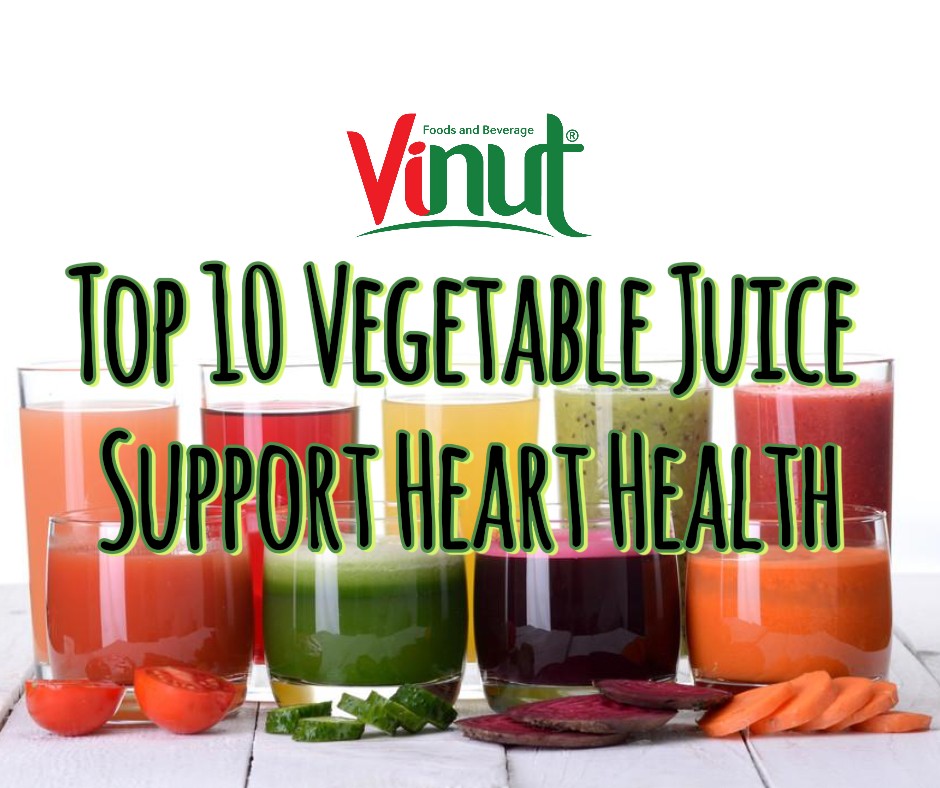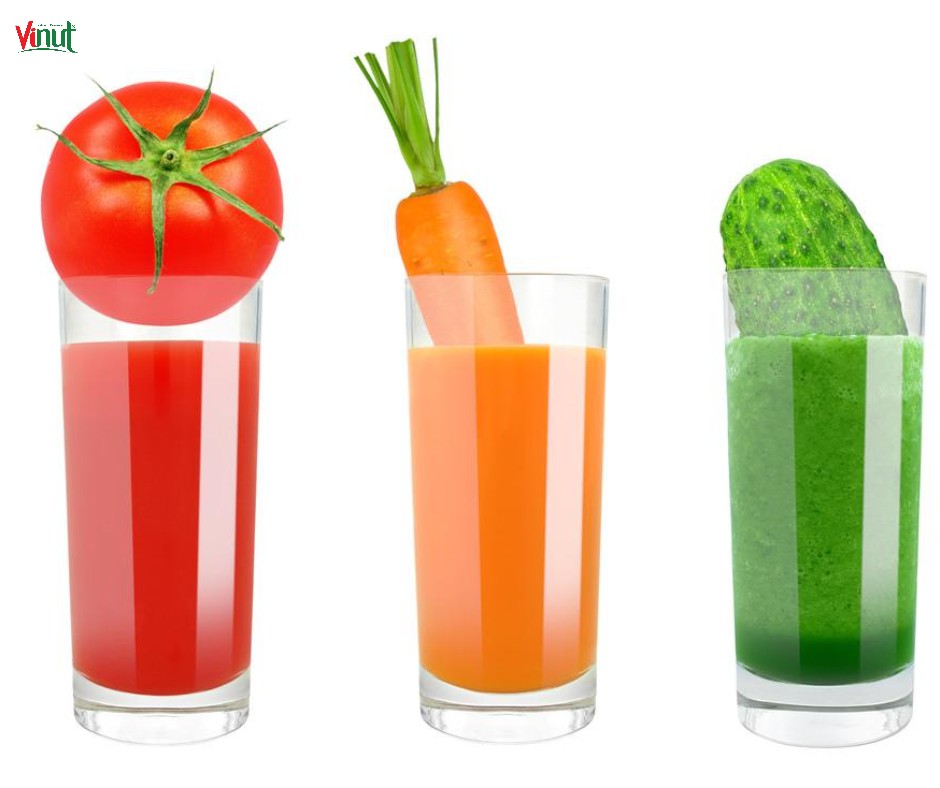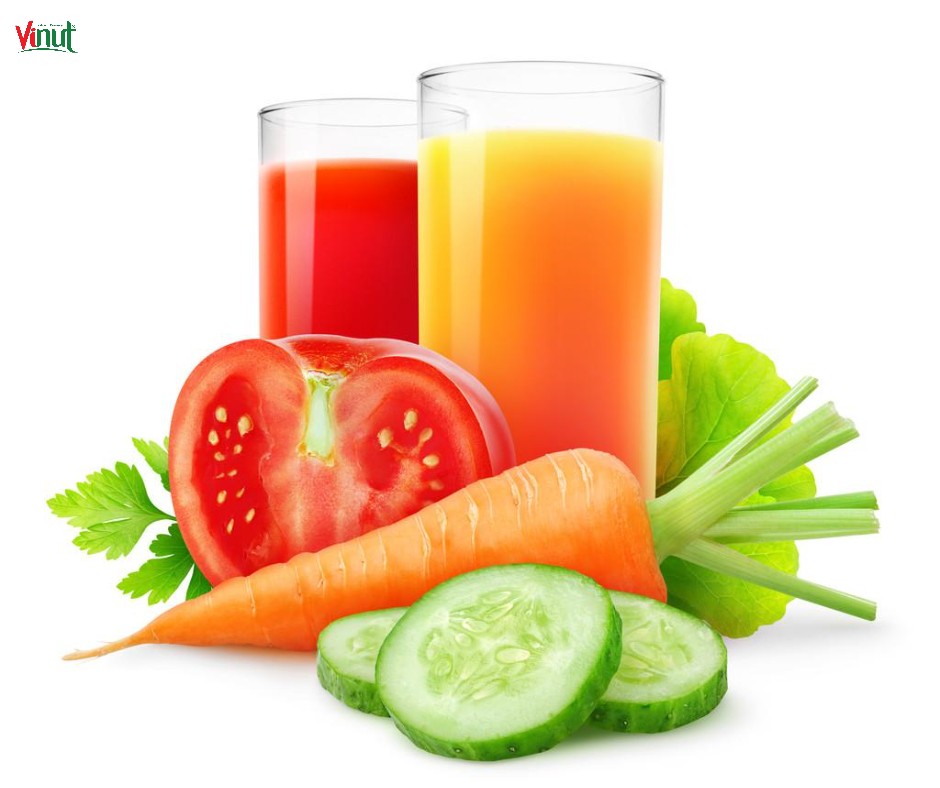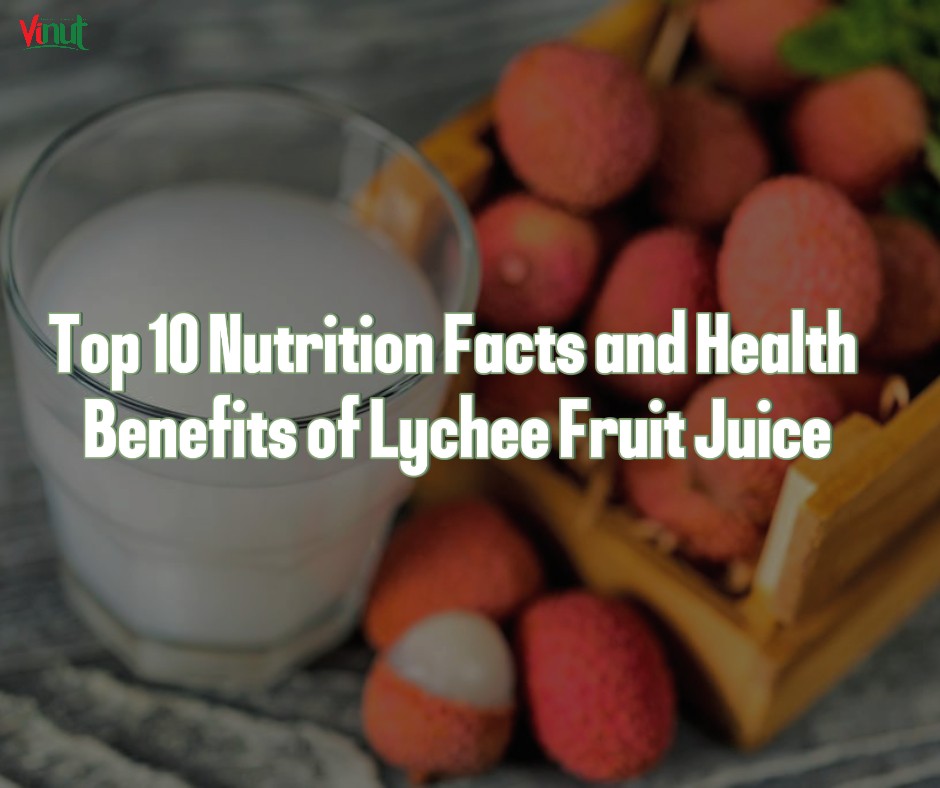
News
Top 10 Vegetable Juice Support Heart Health

Introduction
Maintaining a healthy heart is vital for overall well-being, and diet plays a significant role in cardiovascular health. Vegetable juices offer a convenient and delicious way to support heart health by providing essential nutrients and antioxidants. In this article, Cojo explore the top 10 vegetable juices that promote heart health and discuss their benefits.

Benefits of Vegetable Juice
Vegetable juices are packed with vitamins, minerals, and antioxidants that are beneficial for heart health. These nutrients help reduce inflammation, lower blood pressure, and improve cholesterol levels, all of which contribute to a healthier heart. Additionally, vegetable juices are low in calories and can aid in weight management, another crucial aspect of cardiovascular wellness.
1. Beetroot Juice
Beetroot juice is rich in nitrates, compounds that help dilate blood vessels and improve blood flow. Studies have shown that beetroot juice consumption can lead to significant reductions in blood pressure, making it an excellent choice for promoting heart health.
2. Carrot Juice
Carrot juice is high in beta-carotene, a powerful antioxidant that helps reduce oxidative stress and inflammation in the body. Additionally, carrots contain potassium, which supports heart function by regulating blood pressure and reducing the risk of stroke.
3. Spinach Juice
Spinach juice is loaded with vitamins and minerals, including potassium, magnesium, and folate, all of which are essential for heart health. Potassium helps regulate blood pressure, magnesium supports muscle function, and folate helps reduce homocysteine levels, a risk factor for heart disease.

4. Kale Juice
Kale juice is a nutritional powerhouse, packed with vitamins A, C, and K, as well as antioxidants like lutein and zeaxanthin. These compounds help reduce inflammation and oxidative stress in the body, protecting against heart disease and stroke.
5. Celery Juice
Celery juice contains compounds called phthalides, which help relax the muscles in the walls of blood vessels, leading to lower blood pressure. Additionally, celery is high in potassium, which further supports heart health by regulating fluid balance and blood pressure.
6. Cucumber Juice
Cucumber juice is hydrating and low in calories, making it an excellent choice for promoting heart health. Cucumbers are rich in antioxidants like vitamin C and beta-carotene, which help reduce inflammation and protect against heart disease.

7. Tomato Juice
Tomatoes are rich in lycopene, a powerful antioxidant that has been linked to a reduced risk of heart disease. Lycopene helps lower LDL cholesterol levels and reduce inflammation in the body, both of which are risk factors for heart disease.
8. Bell Pepper Juice
Bell peppers are rich in vitamins A and C, as well as antioxidants like flavonoids and carotenoids. These compounds help reduce inflammation and protect against oxidative damage to the heart, supporting overall cardiovascular health.
9. Garlic Juice
Garlic juice contains allicin, a compound that has been shown to lower blood pressure and reduce cholesterol levels. Additionally, garlic has anti-inflammatory properties and may help prevent blood clots, reducing the risk of heart disease and stroke.
10. Ginger Juice
Ginger juice contains gingerol, a bioactive compound with powerful anti-inflammatory and antioxidant properties. Studies have shown that ginger may help lower blood pressure, reduce cholesterol levels, and improve blood circulation, all of which are important for heart health.
Incorporating Into Diet
Incorporating vegetable juices into your daily diet is easy and convenient. You can enjoy them as a refreshing beverage, add them to smoothies, or use them as a base for soups and sauces. Experiment with different combinations of vegetables to find flavors you enjoy, and aim to include a variety of colors to ensure you’re getting a wide range of nutrients.
Research and Studies
Numerous studies have demonstrated the cardiovascular benefits of vegetable juice consumption. Research suggests that regular intake of vegetable juices can help reduce blood pressure, lower cholesterol levels, and decrease the risk of heart disease and stroke. These findings highlight the importance of including vegetable juices as part of a heart-healthy diet.

FAQs about Vegetable Juice
Are there any vegetables I should avoid juicing for heart health? While most vegetables are beneficial for heart health, some may be high in natural sugars or oxalates, which can be problematic for certain individuals. It’s essential to monitor your intake of high-sugar vegetables like beets and carrots if you have diabetes or are watching your blood sugar levels. Additionally, individuals with kidney stones may need to limit their intake of high-oxalate vegetables like spinach and kale, as these can contribute to the formation of stones.
How much vegetable juice should I drink per day for optimal heart health? The amount of vegetable juice you should drink per day depends on your individual needs and preferences. As a general guideline, aim to include at least one serving of vegetable juice in your daily diet, which is typically around 8 ounces. However, it’s essential to listen to your body and adjust your intake based on how you feel. If you experience any digestive discomfort or other adverse effects, consider reducing your consumption or consulting with a healthcare professional for personalized guidance.
Can I mix fruits with vegetables in my juice for added flavor? While mixing fruits with vegetables can enhance the flavor of your juice, it’s essential to be mindful of the sugar content. Fruits are naturally higher in sugar than vegetables, which can cause spikes in blood sugar levels if consumed in large quantities. If you choose to mix fruits with vegetables, opt for low-sugar options like berries or green apples and aim to keep the fruit-to-vegetable ratio low. Additionally, consider incorporating ingredients like lemon or ginger to add flavor without adding extra sugar.
Are there any potential side effects of drinking vegetable juice? While vegetable juice is generally safe for most people, some individuals may experience digestive discomfort or allergic reactions to certain ingredients. Additionally, consuming large quantities of certain vegetables, particularly those high in oxalates or natural sugars, may lead to adverse effects like kidney stones or blood sugar spikes. It’s essential to listen to your body and pay attention to how you feel after drinking vegetable juice. If you experience any negative symptoms, consider adjusting your intake or consulting with a healthcare professional for advice.
Conclusion
In conclusion, vegetable juices offer a convenient and delicious way to support heart health by providing essential nutrients and antioxidants. Incorporating a variety of vegetable juices into your daily diet can help reduce inflammation, lower blood pressure, and improve cholesterol levels, all of which contribute to a healthier heart. By following the tips outlined in this article and including vegetable juices as part of a balanced diet, you can nourish your heart and promote long-term cardiovascular wellness.











